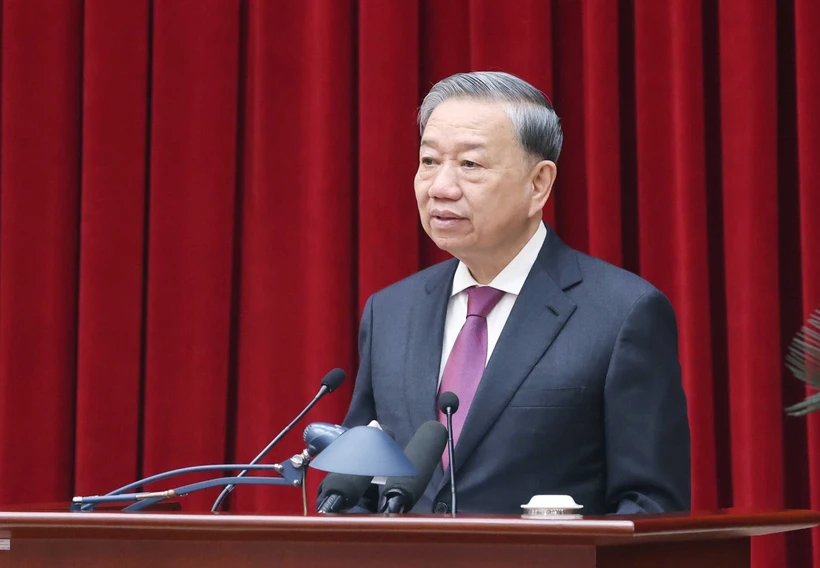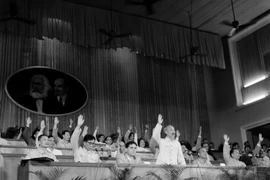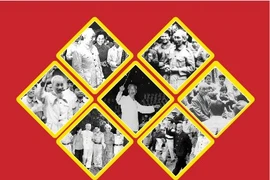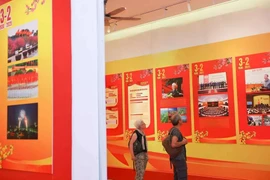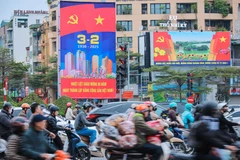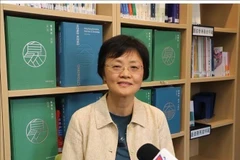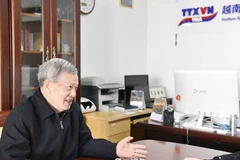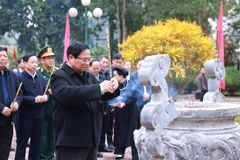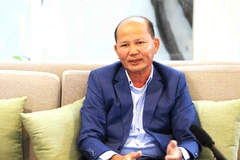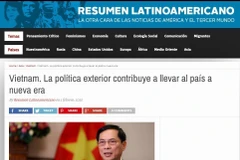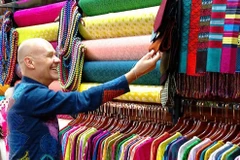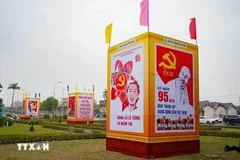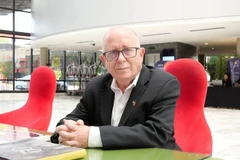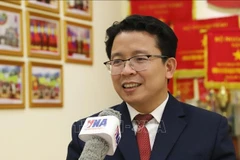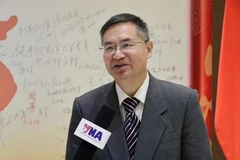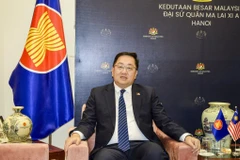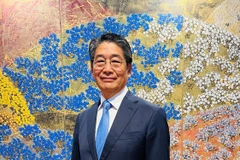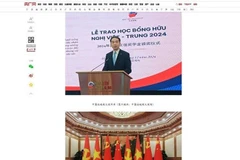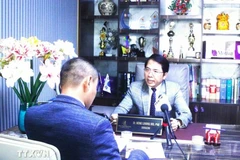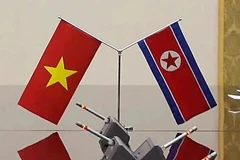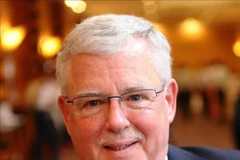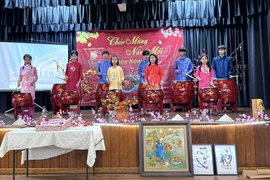Hanoi (VNA) – In celebration of the 95th founding anniversary of the Communist Party of Vietnam (CPV) (February 3, 1930–2025), General Secretary of the CPV Central Committee To Lam has written an article titled “Rang ro Viet Nam” (Shining Vietnam).
The following is the main content of his writing.
Over the past 95 years, the CPV – the vanguard of the working class, the working people and the Vietnamese people – has led the country through countless hardships and challenges to achieve great victories and achievements, leaving a lasting imprint on the nation's glorious history.
Since its establishment, with the right guidelines, appropriate and creative approaches, practical organisational capacity, tenacious fighting, heroic sacrifice by many generations of cadres and Party members, along with the people’s trust, support, wholehearted protection and care, the CPV has led the country to monumental victories of historical and epoch-making significance.
Within just 15 years since its inception, the Party unceasingly developed and led the struggle for national liberation, securing the victory of the August Revolution to establish the Democratic Republic of Vietnam (now the Socialist Republic of Vietnam) on September 2, 1945, abolishing the semi-feudal colonial regime in Vietnam and opening a new chapter in the history of the nation.
The Party led the people to successively defeat all the enemies’ invasion plots and plans, culminating in the historic Dien Bien Phu Victory to force the French colonialists to sign the Geneva Accords in 1954 on peace in Indochina, and thwart the war strategies of the US imperialists to completely liberate the South and reunify the country, writing one of the proudest pages of Vietnam’s history and becoming an event of international stature and profoundly epoch-making significance.
While having to urgently address the extremely serious consequences of the war, the country continued to encounter new challenges. In response, the Party continued to lead the entire army and people to both restore the socio-economy and improve people's lives, and to fight steadfastly to maintain every inch of the sacred land of the Fatherland and protect independence, sovereignty, territorial integrity and the survival space of the nation. At the same time, the country fulfilled the noble international duty towards the Cambodian people.
In the face of new requirements in national development, and to address the shortcomings of the bureaucratic, centralized planning system that led to a socio-economic crisis in the post-war years, the CPV, after reviewing its leadership initiatives and the implementation efforts of the entire political system and the people, launched and carried out a comprehensive Doi moi (Renewal) policy, marking a pivotal turning point in Vietnam's transition to socialism. The policy has met the practical needs of Vietnam's economic development, national defence, security, and foreign relations, showcasing the CPV’s steadfastness and creative mindset, while ushering in a new era for the country’s development.
After nearly 40 years of implementing the Doi Moi policy, Vietnam has transformed from a poor, war-torn, sanctioned, and isolated country into a developing, middle-income nation that is deeply integrated into global politics, the world economy, and human civilization. It now assumes many important international responsibilities, playing an active role in key international organisations and multilateral forums.
The country has maintained its independence, sovereignty, unity, and territorial integrity while safeguarding the interests of the nation and its people. By 2024, the country's economy had reached over 470 billion USD, ranking 32nd globally and among the top 20 economies in terms of trade and foreign investment. The people's quality of life has improved significantly, with the poverty rate decreasing sharply to just 1.93% (based on multidimensional standards), from 60% in 1986. Vietnam's political, economic, cultural, social, scientific, technological, defence, and security capabilities have seen continuous progress. The country's foreign relations have expanded, and its international position and prestige have grown, with active contributions to resolving regional and global issues. It has fulfilled many tasks as a member of ASEAN, the United Nations and other international organisations and institutions, earning the recognition and high evaluation by the international community.
The great achievements of the Vietnamese revolution over the past 95 years are attributed to many factors, of which the Party’s right and clear-sighted leadership is the top decisive factor, along with the sacrifices, fighting, labour, and creativity by the entire people and army under the Party's leadership, as well as the support and assistance from international friends. In difficult and challenging times, the Party has clearly demonstrated its mettle and solidarity and stayed as a unified bloc in will and action, thereby leading and directing the entire political system to strive to achieve great and comprehensive achievements in all fields. At the same time, through the process of leading the revolution, the Party has been trained, becoming increasingly mature and strong, deserving its role and mission of leading the revolution as well as the people’s trust and expectations. That reality has affirmed that in Vietnam, there is no political force other than the CPV that has enough capacity, mettle, intelligence, experience and prestige to steer the country through all difficulties and challenges to lead the country’s revolution from one victory to another.
The Party, State and people of Vietnam will forever remember the contributions by those who have rendered service to the country, families of martyrs, Heroic Vietnamese Mothers, Heroes of the Armed Forces, Labour Heroes, wounded and sick soldiers, the ones who were imprisoned in colonial and imperialist prisons, soldiers who fought on all fronts and fulfilled the noble international duties, war veterans and those who have worked hard and created material wealth for society. The country is also always grateful to international comrades and friends who have constantly accompanied, supported and helped the Vietnamese people in the past struggles for national independence, and continued their cooperation and support for Vietnam’s national construction and development today.
Looking back on the Party’s glorious and pride-worthy history and tradition over the past 95 years, the responsibility of today's generation of leaders and Party members in the historical process of the nation becomes even clearer. The Party's current mission is to lead the country into an era of development and prosperity in which a socialist Vietnam with rich people, a strong nation, and a democratic, equitable and civilised society is successfully built, standing shoulder to shoulder with the powers across the five continents. In that era, all people have a prosperous and happy life and are supported to develop and get rich while Vietnam contributes more and more to regional and global peace, stability, and development, for the happiness of humanity and global civilisation. The top priority is to successfully realise the strategic goals for 2030, when Vietnam will become a developing country with modern industry and upper-middle income; and for 2045, when it will be a developed socialist country with high income.
To continue shouldering that historical responsibility, in the face of new requirements of the revolutionary cause, especially in the context of intensive international integration and challenges arising from the world situation, the Party building work needs to be given more attention, reformed and carried out more strongly, focusing on the following key groups of issues:
First, continuing to firmly adhere to the Party's goals and ideals.
Second, constantly improving the Party's theoretical system.
Third, pushing ahead with building and rectifying the Party to make it clean and strong.
Fourth, staying determined to consolidate the political system towards a streamlined apparatus with effective and efficient operation, and cumbersomeness and overlapping addressed.
Fifth, building the contingent of cadres, especially key officials at all levels.
Sixth, promoting science – technology application and digital transformation in the Party building.
Seventh, an urgent key task of Party committees at all levels, each Party cell, and each Party member in 2025 is to concentrate their efforts and intelligence to, together with the people, complete and exceed the targets stated in the resolutions of Party committees at all levels, especially the socio-economic development targets; organise Party congresses at all levels towards the 14th National Party Congress, with a focus on contributing opinions to the Party’s draft documents; introduce and select truly exemplary persons who work for the sake of the country and the people, to participate in the political system at all levels; and create a truly democratic, united, enthusiastic atmosphere in working, production, construction, and development among people from all walks of life.
Looking back on the 95 years of the Party's development, the Vietnamese people have the right to be proud of and have complete confidence in the bright future of the Party and the nation. In 1945, when leading the entire people to successfully carry out the August Revolution, the Party had only nearly 5,000 members, but with the right guidelines, steadfast spirit, indomitable will and patriotism, it led the people to the glorious victory, establishing the Democratic Republic of Vietnam. In 1960, when the country entered the protracted resistance war against the US, the number of Party members increased to about 500,000, becoming the nucleus guiding the entire nation to fight for independence and national reunification. Today, with more than 5.4 million Party members, the force has been growing unceasingly in both quantity and quality, capable of shouldering the responsibility of leading the country forward in the new era. Each Party member is a symbol of the faith, intelligence and solidarity of the entire nation. The CPV, under the light of Marxism-Leninism and Ho Chi Minh’s ideology, will continue to excellently fulfill its historic mission. With confidence in the strength of the Party and the solidarity of the entire nation, it could be affirmed that the entire Party, people and army will unite to surmount all difficulties and challenges, securing fast and sustainable development for the country in the new era as well as a glorious and bright future for the Vietnamese people./.
